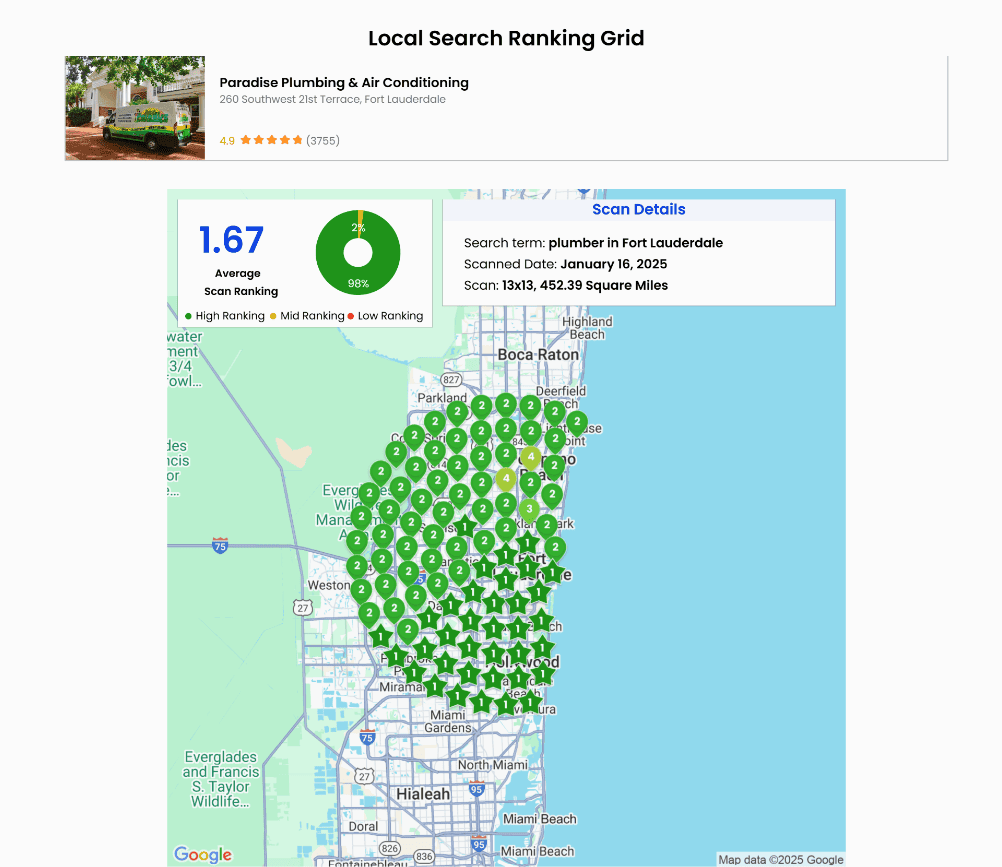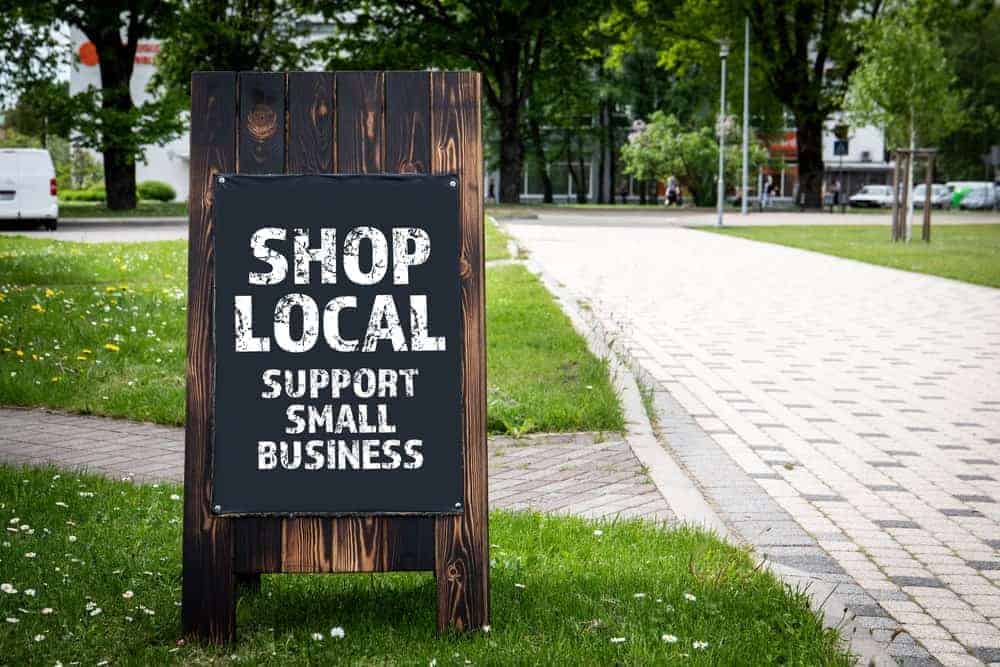What Are Location Pages and Why Do They Matter?
If you’re a small business looking to expand your online presence, location pages might be the secret weapon you need.
Location pages are individual web pages on your site specifically optimized to target a particular geographic area.
Whether you’re a plumber in Florida, a therapist in Texas, or a web design and marketing agency in Cleveland, these pages can help you stand out to customers in your service areas.
The Benefits of Location Pages
1. Increased Visibility Across Multiple Locations
A Google Business Profile (GBP) is powerful but tied to a single physical address.
With location pages, you can target multiple cities, neighborhoods, or regions without limitation. Each page acts as a digital storefront for a specific area, helping you show up in local search results for more potential customers.

2. Boosted Keyword Rankings
Each location page can focus on different keywords relevant to that area.
For example, one page might target “plumber in Fort Lauderdale,” while another targets “water heater repair in Boca Raton.” This keyword diversity increases your chances of ranking in search results and attracting more traffic to your website.
3. No Google Policy Restrictions
Unlike creating multiple Google Business Profiles, which can violate Google Business Profile policies if not done correctly, location pages are entirely within your control. You won’t have to worry about penalties or account suspensions, making them a safe and reliable strategy.
4. Enhanced Customer Trust
A well-crafted location page shows potential customers that you’re committed to serving their specific area. It gives the impression that you’re local, accessible, and knowledgeable about the community’s unique needs.
How to Create Effective Location Pages
Now that you understand their importance, let’s create location pages that attract visitors and convert them into customers.
1. Choose the Right Locations
Start by listing the areas you want to target.
Focus on cities, neighborhoods, or regions with high service demand. Be realistic and ensure you can effectively serve each area.
2. Optimize the Page Structure
Each location page should follow a clear and consistent structure:
- Title and URL:
Include the location name and a relevant service keyword. For example, “Plumber in Boca Raton – Fast, Reliable Plumbing Services.” The URL might look likeyourwebsite.com/boca-raton-plumber. - Headline (H1):
Make it specific, such as “Your Go-To Plumber in Boca Raton, Florida.” - Introduction Paragraph:
Write a friendly opening that mentions the location and your primary services. For example, “Looking for a reliable plumber in Boca Raton? We’ve got you covered with fast and affordable plumbing solutions.”

3. Highlight Your Services
Clearly explain what you offer in the area. Be specific and relatable. For instance, “We specialize in unclogging drains, installing water heaters, and handling plumbing emergencies in Boca.”
4. Add Local Flavor
Mention local landmarks, neighborhoods, or events to make the page feel personal. For example, “Whether you’re near Deerfield Beach or live in the Century Village area, we’re just a call away.”
5. Showcase Testimonials and Reviews
Include a review or testimonial from a local customer to build trust. For example, “These guys were lifesavers when our water heater broke. Highly recommend!” — Jessica R., Boca Raton.
6. Use Eye-Catching Images
Visuals help make your page more engaging. Add high-quality photos of your team at work, completed projects, or recognizable local landmarks.
7. Answer Common Questions
An FAQ section can address specific concerns for that area. For example:
- “Do you offer emergency plumbing in Sandalfoot Cove?”
- “How much does drain cleaning cost in this area?”
8. Include a Case Study or Story
Share a quick story about how you helped a customer in that location. For example, “We once fixed a burst pipe in under an hour for a West Boca family, saving them from significant water damage.”
Add before-and-after photos if possible.
Scaling Your Location Pages
Once you’ve perfected one location page, scaling is simple. Most website platforms allow you to duplicate and tweak a page for a new location.
Just make sure each page is unique to avoid duplicate content issues.
Conclusion
Location pages are essential for businesses looking to dominate local search results and build trust with potential customers.
Creating tailored, informative, and engaging pages for each area you serve can expand your reach, boost your SEO, and grow your business.
Ready to start?
Focus on one location at a time, and soon, you’ll have a network of high-performing pages driving traffic and leads to your site.
Need help designing and publishing effective location pages for your website? Contact the experts at LocalBizGuru today!



